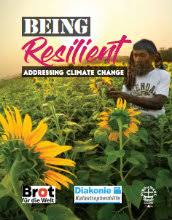Being Resilient: Addressing Climate Change

Building resilience against the impact of climate change has become a policy priority so as to reduce inequality and poverty. Bangladesh, despite being one of the top performers on ‘Social Progress Index’ especially in ensuring basic nutrition and basic medicine, often scared in achieving harmonized economic progress which may be further aggravated by the impacts of climate change and associated loss and damages. Already the 5th Assessment Report of the IPCC (IPCC AR5 2014) pointed to the likely fact that Bangladesh is going to face increasingly adverse impacts of climate change in the years to come. They include, inter alia, too much precipitation during monsoon and too little water during dry season (MOEF/GOB, 2012), more intense and more frequent cyclones and the move of the saline front further up-stream(CEGIS, 2006), massive coastal erosion (Ahmed, 2008) and secondary implications such as food and health insecurity, loss of lives and livelihoods, damage to infrastructures, loss of productive assets and damage to the national/local economy (MOEF/GOB, 2012). The IPCC’s AR5 report also mentions the risk of a rise in poverty in Bangladesh by 15% by 2030 due to increased risks of climate induced disasters and consequent loss of lives and properties and decline in food productivity.
- Publisher: CCDB
- Author(s): Md Shamsuddoha, Md Foezullah Talukder, Muhammed Atik ul Haque Download

